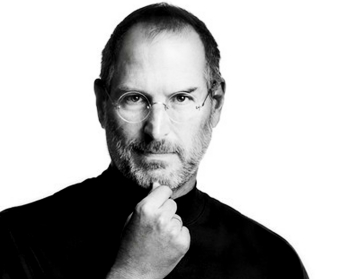The board became increasingly alarmed at the turmoil,
董事會對于兩人關(guān)系的動蕩越發(fā)警覺。
and in early 1985 Arthur Rock and some other disgruntled directors delivered a stern lecture to both.
1985年初,亞瑟·羅克及其他一些心懷不滿的董事對他們倆進行了嚴厲的訓誡。
They told Sculley that he was supposed to be running the company,
他們告訴斯卡利,本來應(yīng)該由他來運營公司,
and he should start doing so with more authority and less eagerness to be pals with Jobs.
他應(yīng)該用更大的權(quán)力履行管理蘋果公司的職責,而少花些心思同喬布斯交好。
They told Jobs that he was supposed to be fixing the mess at the Macintosh division
他們告訴喬布斯,他應(yīng)該解決麥金塔部門內(nèi)部的混亂狀況,
and not telling other divisions how to do their job.
而不應(yīng)該告訴別的部門如何做好本職工作。
Afterward Jobs retreated to his office and typed on his Macintosh,
之后,喬布斯回到辦公室,在自己的電腦上打著:
"I will not criticize the rest of the organization,
“我不再批評公司其他部門,
I will not criticize the rest of the organization."
我不再批評公司其他部門。”

As the Macintosh continued to disappoint—sales in March 1985 were only 10% of the budget forecast
1985年3月,麥金塔電腦的表現(xiàn)持續(xù)令人失望,其銷量只有預(yù)測的10%,
Jobs holed up in his office fuming or wandered the halls berating everyone else for the problems.
喬布斯躲在自己的辦公室里生氣,或是在大廳里訓斥其他人。
His mood swings became worse, and so did his abuse of those around him.
他的情緒起伏更大,對周圍人的辱罵也更甚。
Middle-level managers began to rise up against him.
中層主管們開始起來反抗他。
The marketing chief Mike Murray sought a private meeting with Sculley at an industry conference.
營銷主管邁克·默里在一個行業(yè)會議上與斯卡利私下會面。
As they were going up to Sculley's hotel room, Jobs spotted them and asked to come along.
兩人走向斯卡利的酒店房間時,喬布斯看到了,于是要求一起去。
Murray asked him not to.
默里叫他不要跟過來。
He told Sculley that Jobs was wreaking havoc and had to be removed from managing the Macintosh division.
默里告訴斯卡利,喬布斯正在造成嚴重的破壞,必須把他從麥金塔部門的管理層踢走。
Sculley replied that he was not yet resigned to having a showdown with Jobs.
斯卡利回答說,自己還沒有到要和喬布斯攤牌的地步。
Murray later sent a memo directly to Jobs criticizing the way he treated colleagues
默里后來直接給喬布斯發(fā)了一份備忘錄,批評他對待同事的方式,
and denouncing "management by character assassination."
并譴責其“人身攻擊的管理方式”。
For a few weeks it seemed as if there might be a solution to the turmoil.
有好幾個星期的時甸,兩人之間的問題似乎存在某種解決的可能。
Jobs became fascinated by a flat-screen technology developed by a firm near Palo Alto called Woodside Design,
喬布斯開始著迷于一種平板顯示屏技術(shù),這是帕洛奧圖附近的伍德賽德設(shè)計公司研發(fā)的,
run by an eccentric engineer named Steve Kitchen.
管理這家設(shè)計公司的是一位名叫史蒂夫·基欽的古怪工程師。
He also was impressed by another startup that made a touchscreen display
另一家創(chuàng)業(yè)公司做出的觸摸屏也讓喬布斯興致很濃,
that could be controlled by your finger, so you didn't need a mouse.
利用這種技術(shù),用戶可以直接用手指控制設(shè)備,而無需鼠標。
Together these might help fulfill Jobs's vision of creating a "Mac in a book."
這兩種技術(shù)可能有助于實現(xiàn)喬布斯創(chuàng)造“Mac書”的愿景。
On a walk with Kitchen, Jobs spotted a building in nearby Menlo Park
同基欽的一次散步中,在門洛帕克附近的一幢建筑旁,
and declared that they should open a skunkworks facility to work on these ideas.
喬布斯說道,他們可以開設(shè)一處科研基地,以實現(xiàn)這些想法。
It could be called AppleLabs and Jobs could run it,
它可以叫蘋果實驗室,由喬布斯來管理,
going back to the joy of having a small team and developing a great new product.
這樣,他又能重回帶領(lǐng)小團隊開發(fā)偉大新產(chǎn)品的喜悅之中。



